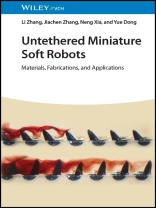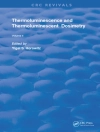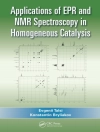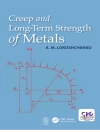Untethered Miniature Soft Robots
Reference on achieving contactless manipulation of soft robots, detailing high level concepts and perspectives and technical skills of soft robots
Untethered Miniature Soft Robots: Materials, Fabrications, and Applications introduces the emerging field of miniature soft robots and summarizes the recent rapid development in the field to date, describing different types of functional materials to build miniature soft robots, such as silicone elastomer, carbon-based materials, hydrogels, liquid crystal polymer, flexible ferrofluid, and liquid metal, and covering the material properties, fabrication strategies, and functionalities in soft robots together with their underlying mechanisms.
The book discusses magnetically, thermally, optically, and chemically actuated soft robots in depth, explores the many specific applications of miniature soft robots in biomedical, environmental, and electrical fields and summarizes the development of miniature soft robots based on soft matter, fabrication strategies, locomotion principles, sensing and actuation mechanisms.
In closing, the text summarizes the opportunities and challenges faced by miniature soft robots, providing expert insight into the possible futures of this field.
Written by four highly qualified academics, Untethered Miniature Soft Robots covers sample topics such as:
- Soft elastomer-based robots with programmable magnetization profiles and untethered soft robots based on template-aiding
- Working mechanisms of carbon-based materials, covering light-induced expansion and shrinkage, and humidity-induced deformation
- Designing microscale building blocks, modular assembly of building blocks based on Denavit-Hartenberg (DH) matrix, and inverse and forward design of modular morphing systems
- Material designs of magnetic liquid crystal elastomers (LCE) systems, multiple-stimuli responsiveness of magnetic LCE systems, and adaptive locomotion of magnetic LCE-based robots
- Controllable deformation and motion behaviors, as well as applications of ferrofluids droplet robots (FDRs), including cargo capturing, object sorting, liquid pumping/mixing, and liquid skin.
Providing highly detailed and up-to-date coverage of the topic, Untethered Miniature Soft Robots serves as an invaluable and highly comprehensive reference for researchers working in this promising field across a variety of disciplines, including materials scientists, mechanical and electronics engineers, polymer chemists, and biochemists.
สารบัญ
Preface ix
1 Introduction to Untethered Miniature Soft Robots 1
1.1 Introduction 1
1.2 Working Mechanisms of Untethered Soft Robots 2
1.2.1 Magnetic Actuation 2
1.2.2 Light Actuation 4
1.2.3 Acoustic Actuation 5
1.2.4 Thermal Actuation 6
1.2.5 Chemical Actuation 6
1.2.6 Biohybrid Actuation 7
1.3 Fabrication Methods of Untethered Soft Robots 7
1.3.1 Molding 7
1.3.2 3D Printing Techniques 10
1.3.3 Semiconductor and Microelectronic Techniques 11
1.3.4 Modular Assembly Based on Bonding Agents 12
1.4 Applications of Miniature Soft Robots 12
1.4.1 Biomedical Application 12
1.4.2 Environmental and Proprioceptive Sensing 13
1.4.3 Intelligent Electronics 15
1.4.4 Micromanipulation 16
1.5 Scope and Layout of the Book 16
1.5.1 Scope of the Book 16
1.5.2 Layout of the Book 17
2 Silicone Elastomers-Based Miniature Soft Robots 25
2.1 Introduction 25
2.2 Soft Elastomer-Based Robots with Programmable Magnetization Profiles 28
2.2.1 Untethered Soft Robots Based on Template-Aided Magnetizing 28
2.2.2 Small-Scale Soft Machines Based on Buckling Instability-Encoded Magnetization 29
2.2.3 Small-Scale Soft Machines Based on 3D Printing of Ferromagnetic Materials 32
2.2.4 3D Miniature Soft Machines Based on Bottom-up Heterogeneous Assembly 34
2.2.4.1 Voxel Fabrication and Magnetization 35
2.2.4.2 Jig-Assisted Assembly Approach 36
2.2.4.3 Demonstration of Miniature Soft Machines Fabricated by the Jig-Assisted Assembly Approach 40
2.3 Reprogrammable Soft Machines 41
2.4 Multi-Stimuli Responsive Transformation of Magneto-Elastomer Based Soft Structures 43
2.4.1 Solvent and Magnetic-Responsive Behavior of Magneto-Elastomers 44
2.4.2 Investigation of the Dynamic Transformations of Cellular Structures 47
2.5 Multimodal and Bioinspired Locomotion Adopted for Elastomer-Based Robot 50
2.6 Potential Biomedical Applications of Miniature Magnetic Soft Machines 55
2.7 Fluidic Pumping by the Magneto-Elastomers 60
2.8 Other Potential Applications of the Magneto-Elastomers 64
2.9 Summary 66
3 Carbon-Based Miniature Soft Robots with Rolled-up Concept 73
3.1 Introduction 73
3.2 The Choices of Carbon-Based Materials 74
3.3 The Working Mechanism of Carbon-Based Materials 76
3.3.1 Light-Induced Expansion 76
3.3.2 Light-Induced Shrinkage 81
3.3.3 Humidity-Induced Deformation 83
3.4 The Programming Shape Changes of Actuators and Their Applications 87
3.4.1 Light-Induced Local Modification 88
3.4.2 Non-light-Induced Local Modification 90
3.4.3 Self-Healing 93
3.4.4 Oriental Control of Elements in Actuators 97
3.5 Summary 99
4 Hydrogels-Based Miniature Soft Robots 107
4.1 Introduction 107
4.2 Fabrication of Reconfigurable Hydrogel Micromachines 109
4.2.1 Design and Characterization of Smart Hydrogel for 4D Printing 110
4.2.2 Reconfigurable Soft Microdevices Fabricated by Point-by-Point 4D Printing 113
4.2.3 Reconfigurable Soft Microdevices Fabricated by Asymmetric Bessel Beam 115
4.2.4 Reconfigurable Soft Microdevices Fabricated by Complex Laser Scanning Strategy 121
4.3 Modular Design of Reconfigurable Soft Robots Based on 4D Microscale Building Blocks 123
4.3.1 Designing Microscale Building Blocks 123
4.3.2 Modular Assembly of Building Blocks Based on DH Matrix 126
4.3.3 Inverse and Forward Design of Modular Morphing System 128
4.4 Application of Reconfigurable Soft Robots 130
4.4.1 p H-Responsive Microparticle and Cell Gripper 130
4.4.2 Localized Cancer Cell Treatment 132
4.5 Summary 134
5 Liquid Crystal Network and Elastomer-Based Miniature Soft Robots 141
5.1 Introduction 141
5.2 Stimuli-Responsiveness Based on Programmed Director Field 143
5.2.1 Programmed Voxelated Director Fields via Two Surface-Patterned Confining Glasses 143
5.2.2 Arbitrary Director Fields Formed via 3D Assembly 144
5.2.3 3DMicrostructures with Uniform and 2D Director Field Alignment 146
5.2.4 3D LCN Microstructures with Encoded 3D Director Field and their 3D-to-3D Shape Transformation 147
5.2.5 Thermal Shape Transformation of LCN Structures Based on 1D and 2D Voxels Assembly 149
5.2.6 Reversible 3D-to-3D Shape Transformation of the Assembled 3D LCE Structures 152
5.3 Magnetic Liquid Crystal Elastomer Composites for Miniature Machines 153
5.3.1 Material Designs of Magnetic LCE Systems 154
5.3.2 Multiple-Stimuli Responsiveness of Magnetic LCE Systems 158
5.3.3 Adaptive Locomotion of Magnetic LCE-Based Robots 161
5.4 Summary 165
6 Flexible Ferrofluid as Soft Robotic Agents 173
6.1 Introduction 173
6.2 Description of Ferrofluids 174
6.3 Deformation Behaviors of FDRs 174
6.3.1 The Influence of Magnetic Fields on the Deformation Behaviors of FDRs 175
6.3.1.1 Magnetic Fields Induced by Permanent Magnets 175
6.3.1.2 Magnetic Fields Induced by Electromagnetic Coils 181
6.3.2 The Influence of FDRs’ Parameters on their Deformation Behaviors 195
6.3.3 The Influence of Contacting Substrate on the Deformation Behaviors of FDR 197
6.4 Applications of FDRs 198
6.4.1 Cargo Capturing and Delivering 198
6.4.2 Objects Sorting 200
6.4.3 Liquid Pumping and Mixing 201
6.4.4 Liquid Skin of Soft Robots 203
6.4.5 Phase Transitional Metallic Ferrofluid-Based Gripper 206
6.5 Summary 206
7 Conclusions and Future Prospects 213
7.1 Introduction 213
7.2 Other Functional Materials Used for Miniature Soft Robots 213
7.2.1 Shape-Memory Materials 213
7.2.2 Biohybrid Materials 215
7.3 Multi-Material Integration Strategies 216
7.4 Multifunctional Integration for Miniature Soft Robots with Perception Capabilities 218
7.5 Perspectives Toward Intelligent and Autonomous Soft Robots 220
Abbreviations 223
References 224
Index 229
เกี่ยวกับผู้แต่ง
Li Zhang is Professor in the Department of Mechanical and Automation Engineering and Professor by Courtesy in the Department of Surgery at The Chinese University of Hong Kong (CUHK), China.
Jiachen Zhang is Assistant Professor in the Department of Biomedical Engineering at City University of Hong Kong (City U), China.
Neng Xia is a Postdoctoral Fellow in the Department of Mechanical and Automation Engineering at The Chinese University of Hong Kong (CUHK), China.
Yue Dong is Associate Professor in the Guangdong Provincial Key Laboratory of Intelligent Morphing Mechanisms and Adaptive Robotics, School of Mechanical Engineering and Automation, Harbin Institute of Technology, Shenzhen (HITSZ), China.












